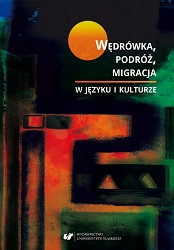
Budowanie wspólnoty podróży na przykładzie zjawiska carpoolingu – analiza komunikatów na stronach internetowych i forach dyskusyjnych poświęconych tematyce współdzielenia przejazdów
The article is devoted to the analysis of messages produced by the users of websites and message boards concerned with carpooling, i.e. sharing free places in one’s car for monetary compensation, in order to characterize and delineate the boundaries of a new travel community, which, in turn, allows to discover the characteristics of its discourse. The author presents discursively crucial characteristics of this phenomenon arising in the process of building a community that exists at the intersection between two worlds: virtual and digital. Moreover, the author points to the economic, communication and community‑forming aspects of carpooling in the context of the dominant discourses on the communication map: public and media‑oriented.
More...
